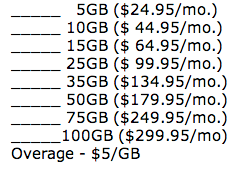CommanderFrank
Cat Can't Scratch It
- Joined
- May 9, 2000
- Messages
- 75,399
Are you in the miniority of the US still stuck with connection speeds less than 0.2 megabits per second? A report from the FCC found that in fact, 30% of all US households in the US are still below that threshold.
About 80 percent of households in the top 10 percent of earners have Internet connections faster than dial-up. For the households in the lowest 10 percent of income, 45 percent have connections faster than dial-up.
![[H]ard|Forum](/styles/hardforum/xenforo/logo_dark.png)
